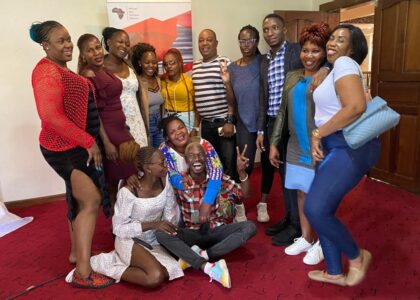
The day 4 of the 1st ALESWA has just wrapped up. The Faculty Team weighed on the survey methodology, how to conduct the survey on social protection, Sexual Reproductive and Health Rights (SRHR) issues and advocacy.

Expectations from the participants from (Day 1)
- The participants said they needed to know what leadership entails and also the essence of resilience as a leader.
- They asked that other leaders should share their leadership skills for all to learn.
- Skills and knowledge enhanced
- Hold the government to account in regard to fulfilling the recommendations in the Universal Periodic Review (UPR).
- How to manage conflict among sex workers groups.
- Build networks and continued partnerships

- The participants learnt about data collection.
- They undertook a test drive, practical on how to fill the questionnaires where while in pairs they decided who would be the interviewer and the interviewee.
- As they dry run the questionnaires, they wrote down problems that might arise during the implementation. For example, some faced digital literacy challenges.
- The questionnaires were about the enquiry framework on human rights frameworks, social protection, and sexual and reproductive health and rights.


Key take away messages
- Advocacy means taking action to create change. Advocates organise themselves to take steps to tackle an issue. They help to give people ways to speak out about things that negatively affect them.
- Advocacy is also described as “speaking truth to power”.
- Advocacy works by:
1.Building evidence on what needs to change and how that change can happen.
2.Raising attention about important issues and give voice to those affected
3.Influencing those in power to provide leadership, take action and invest resources
4.Creating a positive change towards greater social justice and equality



